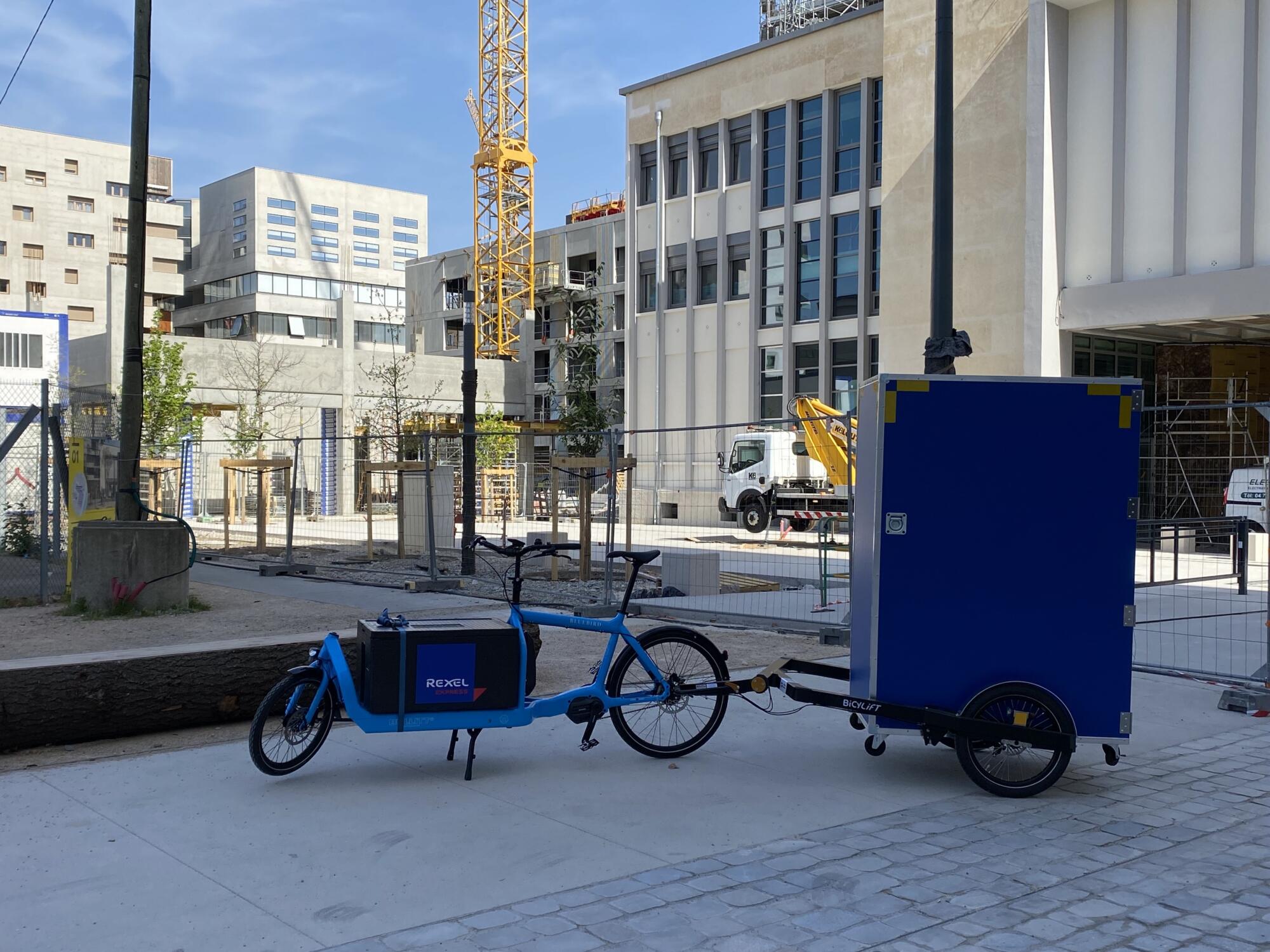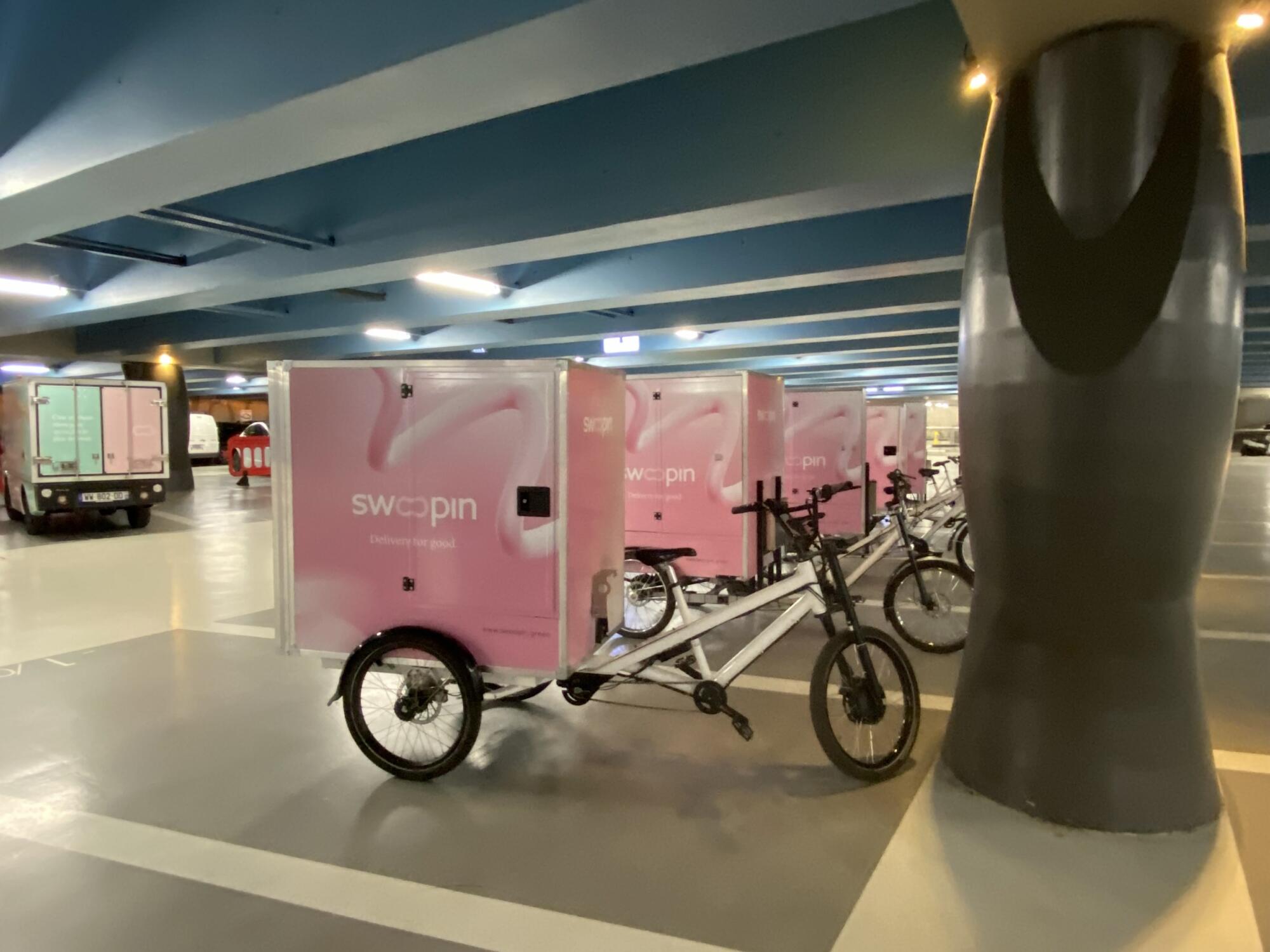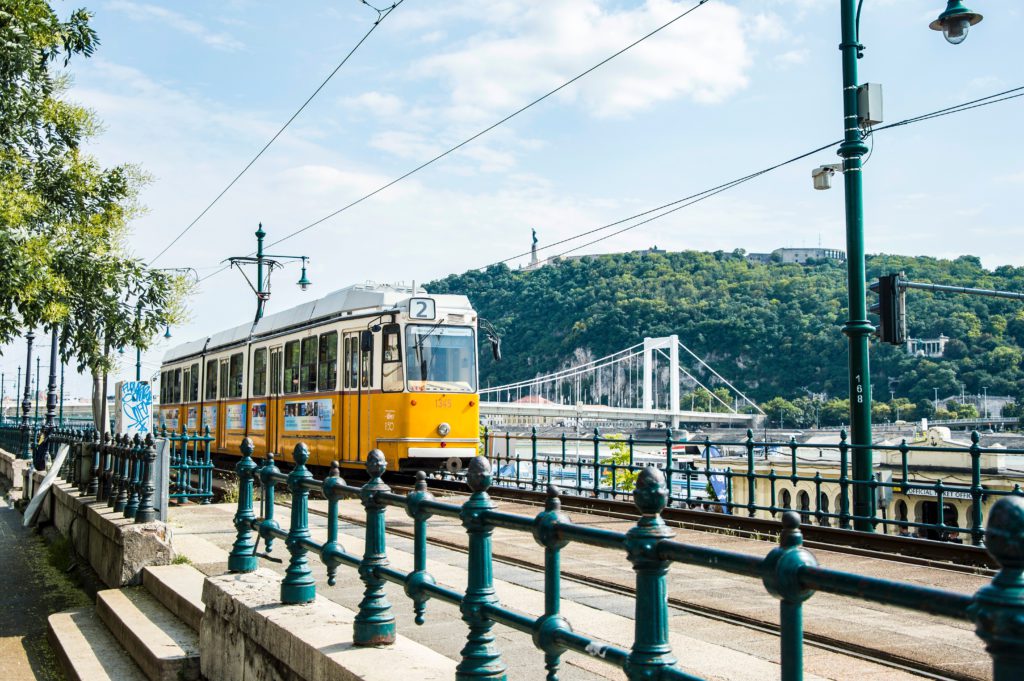Lyon develops new logistic solution to reduce the carbon footprint of the delivery sector
For a year, the city and Métropole of Lyon and are testing an innovative platform in the Marché-Gare car park. The activities are developed in the scope of the EU-funded project LEAD, counting on the participation of Lyon Confluence, Lyon Park Auto and IRT System X. The goal is to rethink last-mile logistics by reducing the carbon footprint of the delivery sector as much as possible, while also limiting noise pollution.
The urban logistics platform, with ongoing tests from April 2022 to May 2023, will occupy 88 parking spaces in the LPA Marché Gare Park, at Lyon Confluence. The experiment is carried out with the help of two companies: Swoopin, an operator of last-mile delivery by electric cargo bike and Rexel, the supplier of electrical equipment. The interests of this experiment are to find a distribution method that relies on "soft modes" to achieve the last mile of delivery. It also aims to reduce the number of kilometres travelled by delivery vehicles.
A low-carbon endeavour
Swoopin works with different e-commerce players, collecting products to be delivered and transporting them to the LPA Marché Gare Park with the heavy goods vehicles running on natural gas and biogas. From there the company ensures deliveries thanks to the available 40 electric cargo bikes to different neighbourhoods of Lyon.Simultaneously, Rexel installed five storage boxes with a volume of 75 cubic meters in the LPA Marché Gare Park. These facilities aim to facilitate the delivery of craftsmen and construction companies, very present in the Confluence district. Two options are available to the customer. They can either pick up their products independently or calls on Rexel to deliver them. To serve all of Lyon in less than two hours, Rexel uses cargo bikes that can carry up to 200 kg, as well as electric vans.

©SPL Lyon Confluence
A desire to export the urban logistics platform to other territories
"This experiment represents a challenge for LPA, which will test the adaptability of its car parks," explains Fabien Bagnon, President of LPA. The European LEAD project has allocated €200,000 to the Confluence urban logistics platform project to assess its impact on urban traffic, the environment and the organisation of its logistics. At the same time, using the data from the experiment, IRT System X is developing a digital twin of urban logistics in the territory of La Confluence. The data collected will make it possible to measure the impacts of the experiment on urban traffic, the organisation of logistics and to test the replicability of solutions. From this data, the digital twin can calculate the value of indicators that can therefore make it possible to evaluate logistics and its impacts on the environment.

©SPL Lyon Confluence
About LEAD:
The LEAD project will create Digital Twins of urban logistics networks in six TEN-T urban nodes (Madrid, The Hague, Lyon, Budapest, Oslo, Porto), to support experimentation and decision making with on-demand logistics operations in a public-private urban setting. Digital Twins are a digital replica of a complex real-world urban environment that represents different processes, actors, and their interaction.



